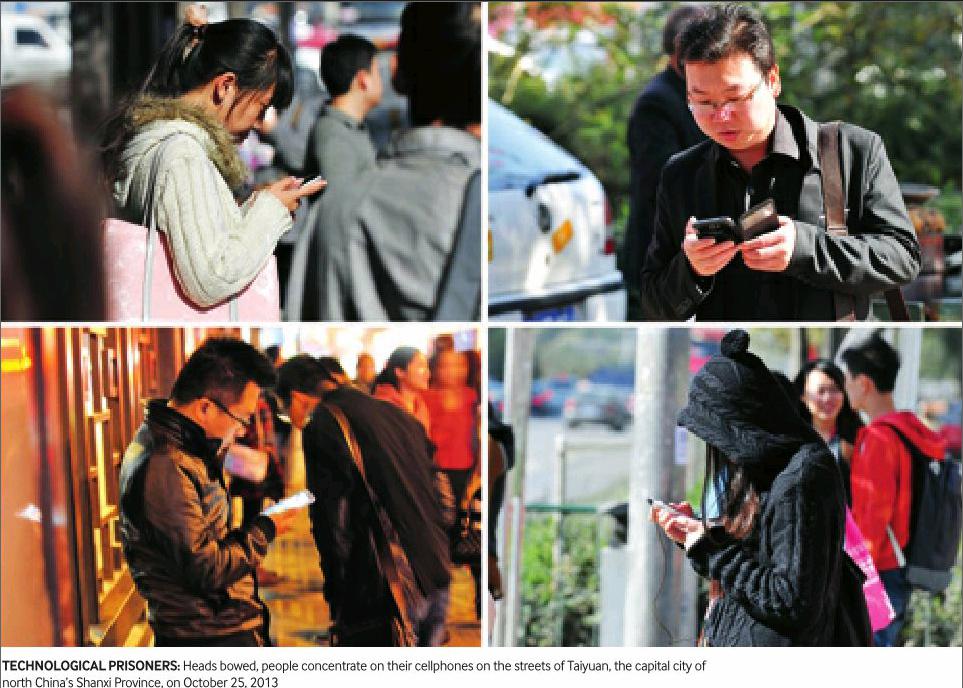Learning to Read Recreationally
2014-03-11ByYuYan
By+Yu+Yan

Recently, Dangdang.com, Chinas biggest online book retailer, released its bestseller lists for 2013, which showed that Chinese readers strongly favored what have been termed “wenyi-style” books over the past year.
Wenyi-style literally means literature (wen) and art (yi) in the Chinese language. Fans of wenyi-style things tend to love literature, enjoy art movies, collect artworks, and favor a simple and casual dress style in their everyday life.
The Dangdang.com list has once again drawn public attention to discussions on the decline of reading as a hobby in China. Many experts have already voiced anxiety over this steady loss of interest, especially its prevalence among Chinas youth.
On July 18, 2013, Xining Evening News, which is based in Chinas Qinghai Province, published a story written by an Indian engineer named Sharmistha Mohapatra who lived and worked in Shanghai, and was astonished by the loss of interest in reading that she witnessed in China.
In the article, Mohapatra wrote about a flight she took from Frankfurt, Germany to Shanghai, China. While waiting in Frankfurt Airport, she saw most of the German travelers were quietly reading or working with a cup of coffee, a newspaper, a book, a kindle or a laptop; while most of the Chinese passengers were busy shopping or chatting. Then during the flight, most Chinese people played in-flight electronic games or watched movies, and she noticed again that none were reading.
She wrote that she had thought it strange that China had the worlds longest tradition of reading, but todays Chinese seemed too impatient to sit down and read a book.
Indeed, many Chinese people have expressed the same concerns. “On the subway, I see many people, especially young people, play games or watch videos on their cellphones or iPads. But few choose to read a book,” said Liu Weili, a senior teacher at a middle school in Beijing.
“It is not that the Chinese people dont read. In fact, many people refresh their micro-blog or WeChat every 10 minutes, although this enthusiasm is not seen transferring over to reading books. Helping people to restore their reading habit is a matter of urgent need,” said Liu.
Zhu Yiqi is a 27-year-old engineer at a company in Beijing with foreign investment. Like many people of his age, he spends what little free time he has outside of working, eating and sleeping on his cellphone and iPad. In the morning, he checks his e-mails and browses the news with his cellphone on the subway. After lunch, he refreshes his micro-blog and WeChat on the cellphone again. When he comes home after work, he plays games on his iPad.endprint
When asked about reading a book, Zhu fell silent. He said, “I havent read a good book seriously for a long time, and I cant even remember when the last time I read a book was.”
Zhu admitted he had done all his reading on cellphone or computer in recent years. Since games have begun occupying almost all his spare time, his cellphone reading is limited to short articles that are less than 100 words.
“When I pick up a heavy book, I find it difficult to concentrate. Sometimes, an article with more than four paragraphs will seem too long for me. Intensive reading has become a hard and painful task.”
Zhu is a typical example of Chinese born in the 1980s and the 1990s. Cellphones have become their favorite tool, with which they can easily read and keep up to date with news and trends through refreshing their micro-blog and WeChat accounts anywhere at any time.
Cramped schedules
The declining popularity of reading is a problem which has drawn peoples attention for years, with nationwide investigations having been carried out to assess the reading habits of Chinese citizens.
According to the latest nationwide reading investigation conducted by the Chinese Academy of Press and Publication in 2012, Chinese citizens aged between 18 and 70 read an average of only 4.35 printed books a year.
“I think a major reason for this is the widespread addiction to the Internet and electronic gadgets,” said Liu.
Lius opinion was echoed by Zhang Baoyi, Director of the Institute of Sociology at Tianjin Academy of Social Sciences.“Electronic products do not help promote reading in China. This is sad,” said Zhang.
Zhang said, “China has a literary cultural tradition dating back thousands of years, but it is endangered by cultural discontinuity. We need reading to help culture to continue being passed down.”
Chinese psychologists believe there are indepth reasons for the loss of interest in reading.
The reason that many do not read, or more correctly, read intensively, is an extreme anxiety in their heart, said Zhao Lijun, a Chinese psychologist.
Fast-paced social interactions, life pressure and negative emotions stop them from becoming engaged in reading. More and more people invest their time and energy into comparing themselves with others. They care more about their salary, career and the size of their apartment than the accumulation of knowledge and abilities, said Zhao.endprint
“Reading is especially important in this information age, because so many new things are emerging. Those things we used to know are changing quickly. The only way to prevent us from the panic that such rapid change brings is to read more and learn more,” said Zhao.
No matter how busy people are, they should put away their gadgets and make some time for reading, said Zhao.
Losing yourself
The problem is that nowadays, some young people believe there is no difference between browsing on a cellphone and reading a book, since both are means of obtaining information. Some even regard reading books as outdated.
“Although online browsing is quick and timely, it will make people too lazy to think, and it could lead to decreased critical thinking and judgment abilities,” said Zhao.
Zhu Yongxin, an educator and Vice Secretary General of the National Committee of the Chinese Peoples Political Consultative Conference (CPPCC), emphasized the significance of reading for the nation. Zhu has been advocating that China establish a National Reading Day since 2003.
“People should read good books, especially the classics. Reading helps you truly immerse yourself in the characters life and share their feelings. It helps you learn to be grateful, to love, to trust, and to cooperate,” Zhu said.
He emphasized that reading is particularly important for primary and middle school students, who “are at a critical time for forming an interest in, and habit of, reading.” Zhu said a persons spiritual hunger is also formed at this period. “If a person doesnt get the spiritual and intellectual nutrition that reading can give you at this age, it will be very difficult for him to form a desire to read in their later life.”
Fortunately, this problem has drawn plenty of attention in Chinese society. Deputies to the National Peoples Congress have submitted proposals on promoting reading, and are currently awaiting a proper decision from Chinas top legislature. nendprint
